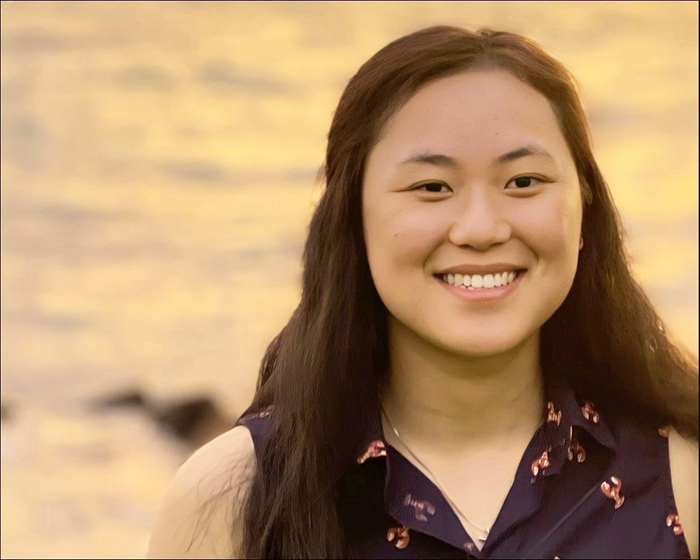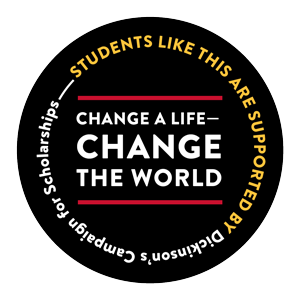Student Snapshot: Leah Goldberg '23

As a student of Japanese language, Leah Goldberg loves to explore the intricacies of a language that’s very different from English. And as a computer science student, she uses code to solve sometimes intricate problems. A peer mentor, teaching assistant, world-language tutor and scholarship awardee, Leah recently conducted research at the Rochester Institute of Technology for Computational Sensing for Human-centered AI.
Hometown:
Maple Glen, Pennsylvania
Majors:
Japanese and computer science.
Clubs and organizations:
Multilingual Writing Center (tutor), Dana Research Assistant program (Departments of East Asian Studies and Computer Science), Peer Tutoring Program, Asian & Asian American Collective and ACE Peer Mentor.
The Richard Howard Memorial Scholarship, Upsilon Pi Epsilon, Alpha Lambda Delta, National Society for Leadership and Success, academic merit scholarship and Dean’s List.
Best thing about my Dickinson experience so far:
Being able to create meaningful and personal relationships with Dickinson professors. The professors here take the time to get to know their students, and they provide various forms of support and multiple opportunities so that each student can reach their goals. I truly value the advice and insight they have given me, and I hope to maintain good relationships with them even after I graduate.
Best thing about my major:
Japanese: I like learning about Japan’s culture, and since Japanese syntax is very different from English syntax; I find it interesting to explore the intricacies of the language. Computer science: I greatly enjoy the creative and logical process of programming.
Favorite class:
Computing Abstractions with Professor of Computer Science Grant Braught. It was really interesting to get a broad overview of how computer systems were built up from zeroes and ones, all the way to the personal computers and webpages we interact with today. I have gained a great appreciation for the hard work and time that goes into the advancement of technology from taking this class.
Little-known hobby/talent:
I can solve several types of Rubik’s Cubes.
About my research:
I conducted research through a summer program at the Rochester Institute of Technology for Computational Sensing for Human-centered AI. I worked with Dr. Zhi Zheng in the Department of Biomedical Engineering on a project that investigated if we could classify cognitive stress based on physiological signal processing. Specifically, I worked with data from photoplethysmography (PPG) and used it to train a machine-learning model to see if it could differentiate between two different types of cognitive stressors. Through this experience, I worked with people from diverse backgrounds and learned about the processes of physiological signal processing and machine learning.
Most important thing I’ve learned so far:
Be kind to yourself, and be confident in your own abilities.
Read more Student Snapshots.
TAKE THE NEXT STEPS
Published November 4, 2022
